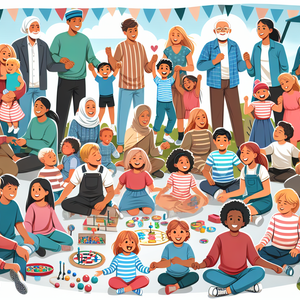Vanna White’s Salary and Its Impact on Gender Pay Disparity in Television

Vanna White's journey on 'Wheel of Fortune' began in 1982, and since then, she has become synonymous with the show. Throughout her tenure, her salary has seen substantial growth, but it has often been overshadowed by her male counterpart, Pat Sajak. Reports suggest that Vanna White's salary is significantly lower than Sajak's, despite her pivotal role in the show's success. As of recent estimates, Sajak reportedly earns about $15 million a year while White’s earnings hover around $3 million. This discrepancy raises critical questions about gender pay equity in an industry where women often face systemic barriers to equal pay.
Historical Context of Gender Pay Disparity
The entertainment industry has long been criticized for its gender pay gap. A study by the American Association of University Women found that women in media earn, on average, only 82 cents for every dollar earned by men. This disparity is particularly glaring in high-profile roles like game show hosts, where the visibility of the job creates a platform for scrutiny and discussion. Vanna White's salary, while impressive in its own right, is indicative of a pattern where female talent is often sidelined in negotiations, resulting in pay rates that do not align with their contributions.
Factors Influencing Pay Disparity
Several factors contribute to the pay gap between Vanna White and Pat Sajak. First, historical perceptions of gender roles play a significant part. Traditionally, women have been cast in supportive, less authoritative roles, which can influence salary negotiations. The expectation that female hosts should occupy a subordinate position contributes to the notion that their contributions are less valuable, further perpetuating the pay gap.
The Importance of Advocacy and Change
The conversation around Vanna White's salary isn’t merely about numbers; it’s about advocating for systemic change in how women are compensated in the entertainment industry. Organizations like Time’s Up and the #MeToo movement have shed light on gender inequality and have pushed for transparency in pay practices. By examining cases like White's, advocates can highlight the need for equitable pay that reflects the contributions of all individuals, regardless of gender.
Conclusion: A Call for Equity
Vanna White's salary serves as a microcosm of the broader challenges facing women in television and the entertainment industry at large. While her earnings are substantial, the stark contrast with her male counterpart highlights an ongoing issue of gender pay disparity. As conversations around gender equity continue to evolve, it is crucial to recognize the value that women bring to their roles and to advocate for fair compensation that reflects their contributions.
Addressing the issue of gender pay disparity is not just a matter of fairness; it is essential for the progress of the entertainment industry as a whole. As audiences demand more equitable representations and practices, the industry must respond by valuing all contributions equally—an effort that will ultimately enrich the storytelling landscape for everyone.
Television Producer
ABC, NBC, CBS, Warner Bros., Universal Pictures
Core Responsibilities
Oversee all aspects of production, from budgeting to scheduling and resource allocation.
Collaborate with writers, directors, and other stakeholders to develop compelling content that aligns with network standards.
Ensure the production meets deadlines while maintaining high-quality outputs.
Required Skills
Strong leadership and project management skills.
Proficient in budgeting and financial management.
Excellent communication and negotiation abilities.
Gender Equity Advocate in Media
Time's Up, American Association of University Women
Core Responsibilities
Conduct research on pay disparities and advocate for policy changes that promote gender equity within media organizations.
Develop and execute campaigns aimed at raising awareness about gender pay gaps and the importance of equitable representation.
Collaborate with industry leaders and organizations to implement best practices for salary negotiations.
Required Skills
Strong analytical and research skills to effectively present data and findings.
Excellent public speaking and interpersonal skills for advocacy work.
Familiarity with media industry dynamics and gender issues.
Broadcast Journalist
CNN, BBC
Core Responsibilities
Research, write, and present news stories for television broadcasts.
Conduct interviews and gather information from various sources to create engaging and informative content.
Ensure accuracy and fairness in reporting while meeting tight deadlines.
Required Skills
Strong storytelling and writing skills.
Proficiency in multimedia journalism and social media platforms.
Ability to work under pressure and adapt to changing news environments.
Media Relations Specialist
Edelman, Weber Shandwick
Core Responsibilities
Develop and maintain relationships with media outlets to promote clients or organizations' interests.
Write press releases, speeches, and other communication materials to communicate key messages.
Monitor media coverage and analyze public sentiment regarding clients or industry trends.
Required Skills
Strong writing and editing skills, with an emphasis on clarity and persuasion.
Excellent organizational and project management abilities.
Knowledge of media landscape and experience with crisis communication strategies.
Diversity and Inclusion Officer in Entertainment
Disney, Netflix, Warner Bros.
Core Responsibilities
Develop and implement diversity initiatives aimed at promoting equitable hiring and pay practices within the organization.
Analyze data related to workforce demographics and pay equity to identify gaps and areas for improvement.
Create training programs to foster an inclusive workplace culture.
Required Skills
Strong understanding of diversity and inclusion best practices.
Excellent analytical and problem-solving skills.
Ability to communicate effectively and build relationships across diverse groups.


